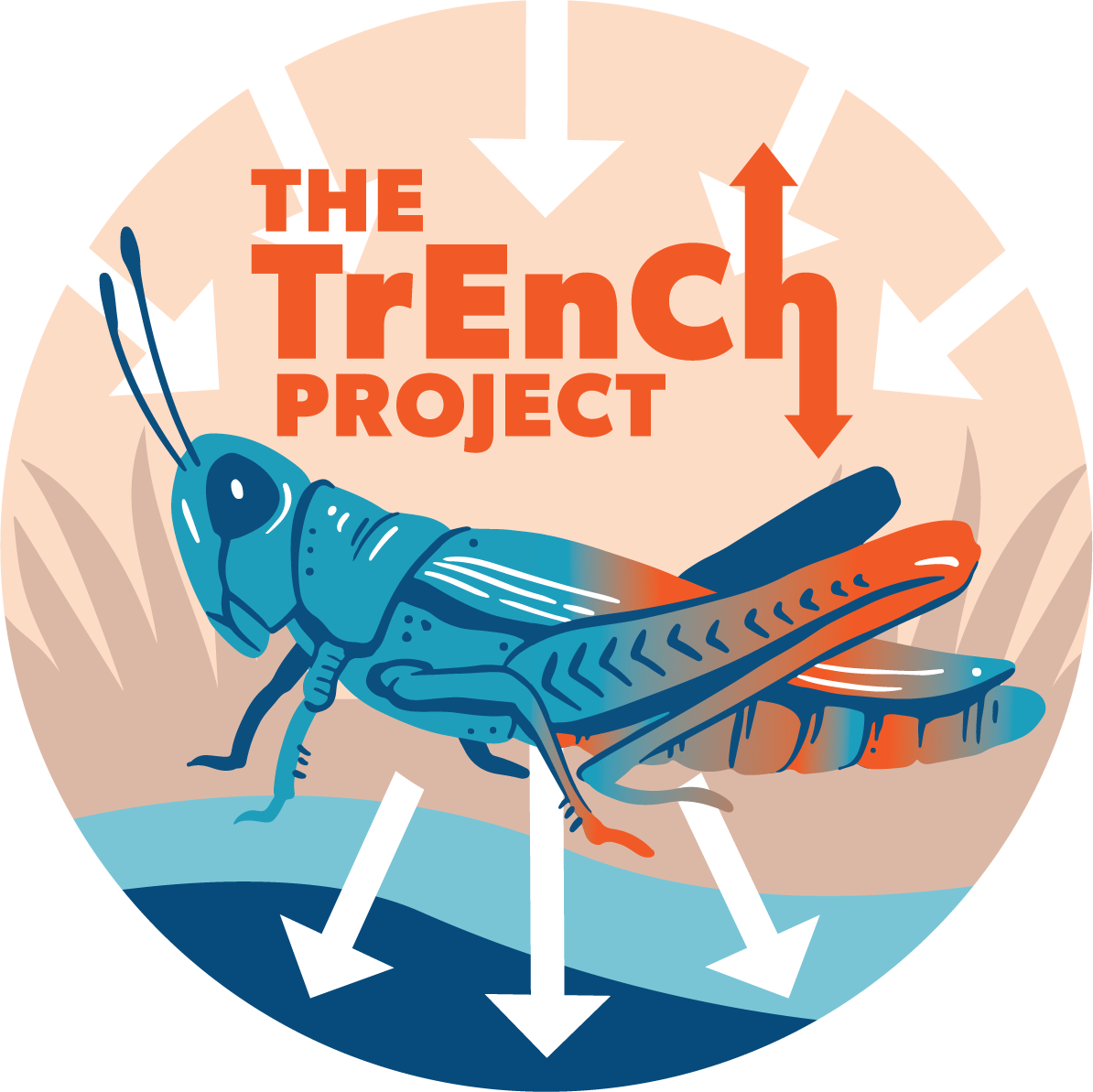featured tool
TrenchR
An R package for environmental and ecological biophysics, TrechR offers microclimate models as well as accessible energy budget models to translate microclimate into estimates of animal body temperature. We are developing our tools in collaboration with the NicheMapR initiative, which offers an R package and RShiny interfaces for more complex microclimate and biophysical models.

TrEnCh-Map Visualizations
We offer interactive visualizations for exploring organismal responses to environmental conditions.
Mapping ectotherm body temperatures and areas of thermal stress: This app uses biophysical models for a variety of ectothermic taxa to map recent and projected future body temperatures and areas of thermal stress across the US.
Lizard thermal safety margins: The app uses biophysical modeling to explore lizard body temperatures and thermal safety margins- how much warming could occur before a lizard exceeds its thermal tolerance.
Insect development and phenology: The app leverages a database of insect development traits to predict phenology for many species across the US.
Education and outreach
Trench-ED
We have created the TrEnCh-ed website, including interactive R Shiny applications and associated tutorials, to allow students and visitors to explore the ecological and evolutionary impacts of climate change through interacting with data.
Biophysical ecology tutorials
We’ve developed a series of tutorials aimed at graduate students interested in biophysical ecology. The tutorials originate from a 1979 course at UW entitled “Physical Prcoesses in Ecosystems” and align with the TrenchR package.
Quantitative modelling tools
TrenchR
TrenchR is an R package for transparent environmental and ecological biophysics. It offers microclimate models as well as accessible energy budget models to translate microclimate into estimates of animal body temperature.
TrEnCH-IR
TrEnCh-IR is a web service for processing, storing, and disseminating FLIR infrared imagery.
Project-specific tools
Extreme value analysis for temperature data
From a review paper on quantifying thermal extremes Dryad Respository GitHub Repository
From a perspective paper on leveraging organismal biology to forecast the effects of climate change GitHub Repository
Model of butterfly responses to climate change
Integrates microclimate, developmental, biophysical, demographic, and evolutionary models
Quantitative genetic model: GitHub Repository Simpler but less documented than below.
Model at biogeographic scales: GitHub Repository
Spatial autoregressive models and Colias butterfly museum data
the why behind our work
New climate challenges demand new tools.
We provide computational and visualization tools that can improve our climate change models by (1) extracting fine spatial and temporal scale microclimate data, (2) translating microclimate conditions into animal body temperatures, and (3) mapping body temperatures and regions of thermal stress.
Want to join us in this work? Become a project member today!






